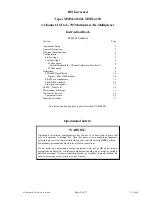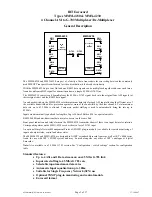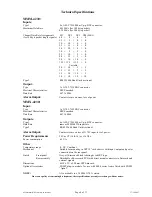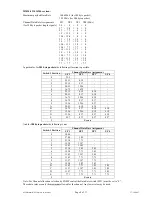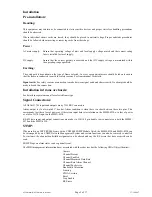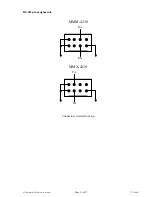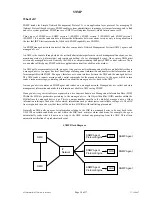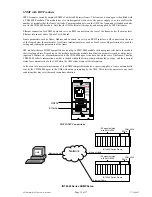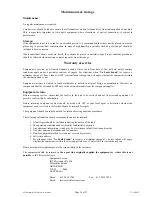
4230-mmm & 4230-mmx.ib.rev4.doc
Page 7 of 17
17/10/2007
Variable Bandwidth – Channel Allocation Selection A:
For
188 byte packets
the following allocation is possible –
Channel Data Rate Assignment
I/P 1
I/P 2
I/P 3
I/P 4
40.2
- - -
26.8 13.4 -
-
26.8 - 13.4 -
26.8 - - 13.4
13.4 13.4 13.4 -
13.4
13.4 - 13.4
13.4 - 13.4
13.4
- 40.2 - -
13.4 26.8 -
-
- 26.8
13.4 -
- 26.8 - -
- 13.4 13.4 13.4
- - 40.2 -
13.4 - 26.8 -
- 13.4
26.8 -
- -
26.8
13.4
- - -
40.2
13.4 - - 26.8
- 13.4 - 26.8
If only one channel is present then the total bandwidth is allocated to that channel.
If two channels are present and one exceeds a rate of 13.4 Mb/s then that channel will be assigned 26.8 Mb/s and
the other 13.4 Mb/s. However, input 1 has priority over inputs 2, 3, & 4, input 2 has priority over inputs 3 & 4, and
input 3 has priority over input 4. So even if, say, channel 2 has an input rate above 13.4 Mb/s and then input 1’s rate
also increases above 13.4 Mb/s, then input 1 will be assigned the bandwidth of 26.8 Mb/s whilst input 2’s will be
relegated to 13.4 Mb/s. Once a channel has been assigned a bandwidth of 26.8Mb/s it will retain the allocation until
either its input signal is removed, or until a channel with higher priority requires 26.8Mb/s allocation, or there are
any three channels connected.
If three channels are present they will each be assigned 13.4 Mb/s.
If four channels are present then channel 4 will not get any bandwidth.
The error concealment in the MMX-4230 will not allow an instantaneous change in channel allocation, so this
should be disabled when using the above option by installing link LK1.


